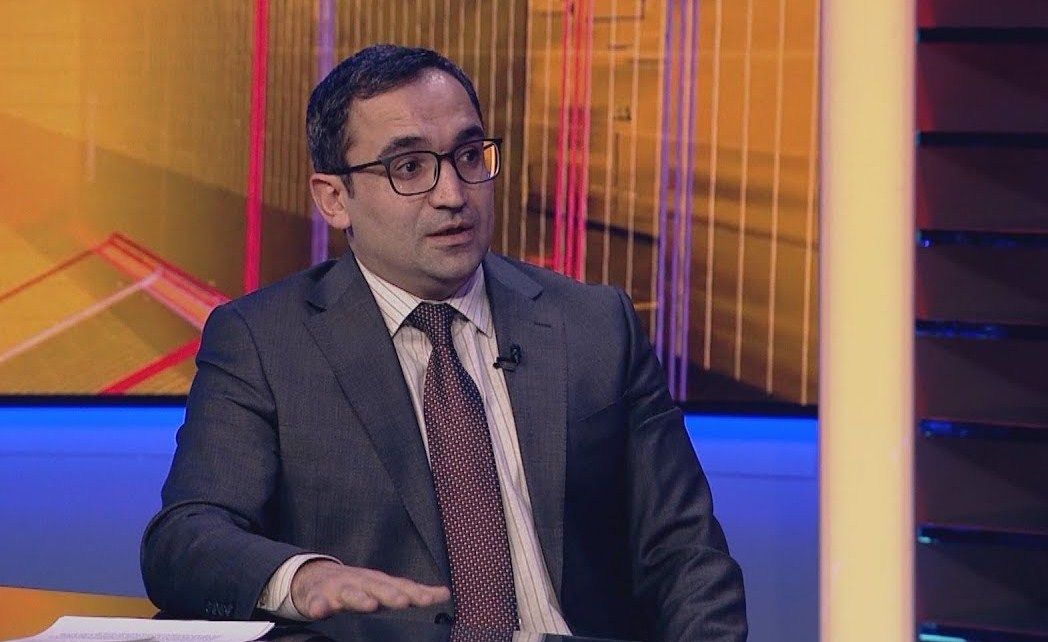Fall in inflation mirrored in drop of food price in Azerbaijan [COMMENTARY]
![Fall in inflation mirrored in drop of food price in Azerbaijan [COMMENTARY]](https://www.azernews.az/media/2024/04/16/657034-graph-1389291484.jpg)
During January–March 2024, Azerbaijan witnessed a mere 1% rise in prices, with a concurrent decline in food prices, as reported by the State Statistics Committee for the same period.
According to the committee's findings, prices in the country saw a 1% increase during the initial three months of 2024 compared to the corresponding period in 2023.
Notably, the collective cost of food items, beverages, and tobacco products experienced a reduction of 0.3%.
Conversely, non-food items saw a 1.4% increase in price, while the cost of services offered to the public rose by 2.5% during this time frame.
So, what is the reason for the decrease in food prices? Can this trend continue?
Speaking to Azernews, economist Natig Jafarly said that the weakening of inflation in Azerbaijan has been quite noticeable since the beginning of the year as a tendency.

"But people don't guess it in the published figures. That's why we need a new rule. We proposed these new rules in our public speeches. Those rules exist in many countries. It is about the fact that a large part of the population in Azerbaijan uses daily necessities, about thirty products. In our case, inflation indicators are calculated for more than 500 products. Something new needs to be done here. Inflation of 30 items or products of daily demand (fruits, vegetables, rice, buckwheat, butter, chicken meat, eggs) should be calculated separately. If the inflation of 30 products of daily demand is calculated separately, it will show this picture more clearly. For example, there are citrus fruits, avocados, and other products at inflationary prices whose price changes do not affect people that much. But changes in the price of potatoes, onions, tomatoes, cucumbers, buckwheat, pasta products, etc. affect people more.
"Therefore, in parallel with this inflation, it would be better if the inflation of 30 items of daily necessities is calculated separately and the price changes there are also taken into account," the economist noted.
Further to comments on the issue, according to economist Khalid Karimli, the main reason for the decrease in prices is related to the processes occurring in the world market.

"There is a food price index announced monthly by the Food and Agriculture Organisation of the United Nations, and this food price index is 9.9% lower in March 2024 compared to March 2023. That is, it means that food prices in March of this year are 9.9% cheaper compared to March of last year. This also allows us to say that certain price decreases continue to be observed in Azerbaijan."
Karimli noted that looking at the recent months, especially March, we see that there are certain increases as well.
"Particularly, minor increases are observed in vegetable oils and dairy products. There is a decrease compared to last year, but certain increases are visible in March compared to the last one or two months.However, looking at the structure of the goods, for example, the price of meat seems to continue to rise. For example, chocolate products will become more expensive."
"So, while some goods are becoming more expensive, others are becoming cheaper. In general, we have witnessed a decrease of around 9.9-10% in the past year. I expect this kind of decrease to continue gradually rather than sharply. The Central Bank predicts an inflation rate of 5-5.5% in Azerbaijan for this year. This is lower compared to previous years, but overall, it is not expected that prices will decrease. In 2024, inflation is expected to occur again in the country. This will also have an impact on food prices," he concluded.
---
Follow us on Twitter @AzerNewsAz
Here we are to serve you with news right now. It does not cost much, but worth your attention.
Choose to support open, independent, quality journalism and subscribe on a monthly basis.
By subscribing to our online newspaper, you can have full digital access to all news, analysis, and much more.
You can also follow AzerNEWS on Twitter @AzerNewsAz or Facebook @AzerNewsNewspaper
Thank you!

